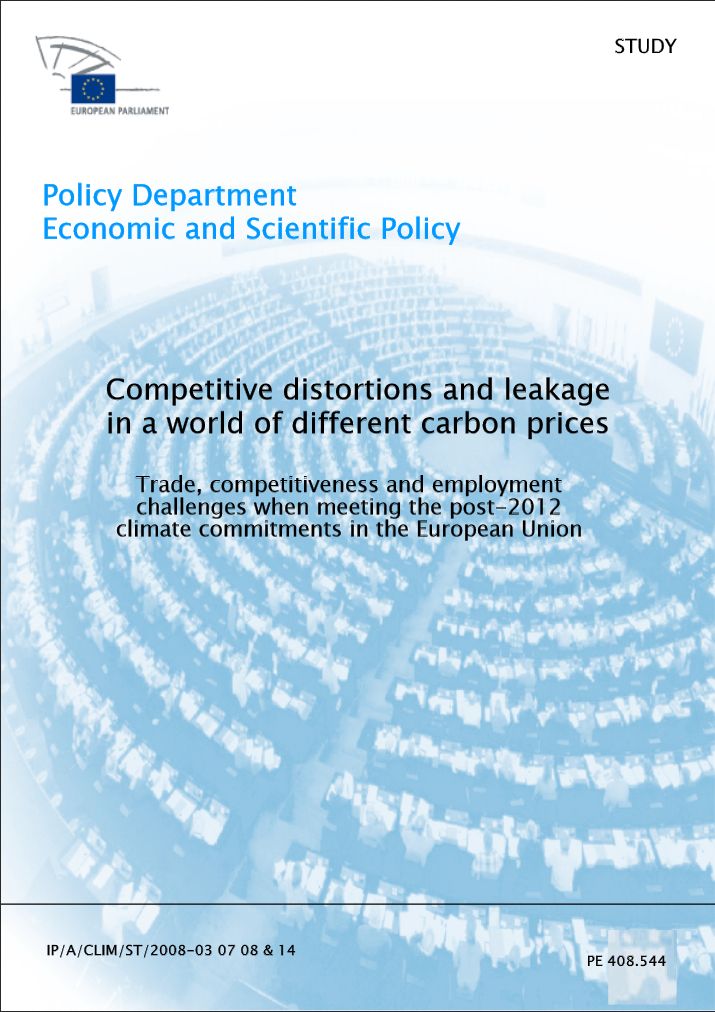Differences in national climate protection policies can lead – at least in principle – to "carbon leakage", i.e. the relocation of industries to countries with less stringent climate change legislation and a subsequent increase in greenhouse gas emissions in those countries. In a legal study for the German Federal Environmental Agency (UBA), the Ecologic Institute and WTI Advisors analyse whether measures to address carbon-leakage are compatible with EU and WTO law. The study is available for download.
Carbon leakage and how to address it is a key subject of national and international climate change policies. Different measures are currently under discussion in the EU to reduce the risk of carbon leakage. In their legal study, the Ecologic Institute and WTI Advisors examine two types of measures to address carbon leakage: Direct compensation for affected industries and border adjustment measures. The direct compensation would involve allocating free emission allowances and direct payments to the companies and sectors affected. Border Adjustment Measures (BAM), could take the form of 1) a duty by an importer to pay allowance, 2) a tariff on imports at the time of entry, and/or 3) relief granted on exports at the time of exit.
The study concludes that the free allocation of emission allowances—direct compensation—are legally less problematic than the other options. These instruments can be designed in compliance with applicable laws. From an environmental policy point of view, direct compensation is counterproductive because it privileges polluting industries and removes in part incentives to produce in a more environmentally friendly manner. The BAM, on the other hand, is difficult to construct in such a way that it is both feasible and consistent with EU and WTO law. Regarding BAM it is doubtful whether it will encourage other countries to introduce more ambitious climate protection policies. The study may be downloaded here:
- Ecologic Institute Publication: Emissions trading - proposals for further development with special focus on measures in energy-intensive industrial sectors [pdf, 700 KB, English]
- Ecologic Institute Publication: Weiterentwicklung des Emissionshandels unter besonderer Berücksichtigung von Maßnahmen betreffend energieintensive Industrien [pdf, 713 KB, German].




